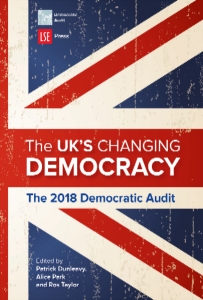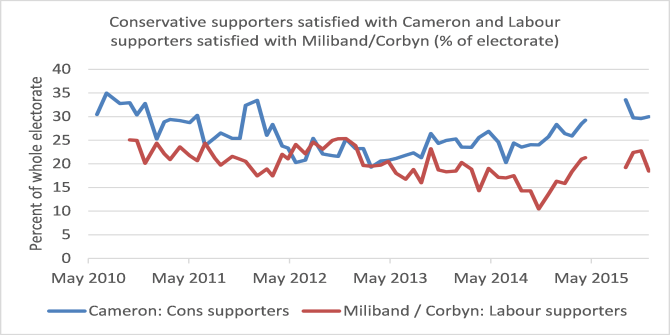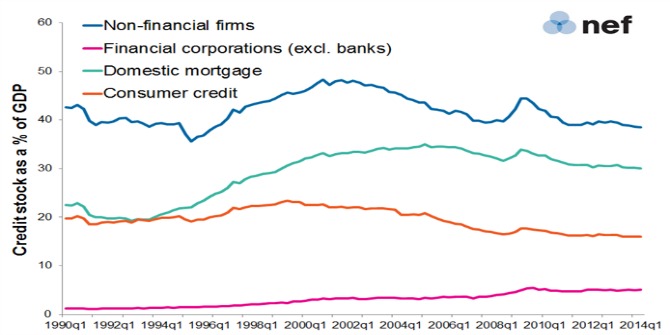In The UK’s Changing Democracy: The 2018 Democratic Audit, the first book published by LSE Press and available open access here, editors Patrick Dunleavy, Alice Park and Ros Taylor bring together contributors at an ideal juncture to assess how the UK’s political landscape has changed in recent history and reflect on its current state, covering such topics as the electoral system, political participation, devolution and human rights. This is a coherent, informative volume, writes Elyse Wakelin, which is a welcome, thought-provoking addition to analysis of democracy in the UK today.
The UK’s Changing Democracy: The 2018 Democratic Audit. Patrick Dunleavy, Alice Park and Ros Taylor (eds). LSE Press. 2018.
The publication of The UK’s Changing Democracy: The 2018 Democratic Audit – the first book from LSE Press, available to download for free here – comes at a time of significant change to the way in which the UK’s democracy functions. At the time of writing this review (mid-April 2019), we are still waiting with bated breath as to what the final outcome of Brexit will be: deal, no deal or even no Brexit at all? After three failed attempts on the part of Prime Minister Theresa May to get her deal through Parliament and multiple amendments and alternative plans failing to gain majority support, the future of the UK’s democracy is very much up in the air, with the new deadline set for 31 October 2019.
Any one of these final outcomes will invariably impact upon the way in which democracy operates in the UK. The UK will be required to either adjust to life outside of the EU, with a relationship which is regulated or the uncertainty that a no deal Brexit would bring, or the UK will have to adapt following its protracted and highly publicised failure to agree on how to leave the EU in the event of no Brexit. The UK’s democracy is at the point of significant change, but at present one cannot predict what form this will take with any degree of certainty. This volume therefore comes at the ideal moment to audit and review how the UK’s political landscape has changed over time as we approach this significant juncture.
The collection aims to provide an overview of how democracy has developed in recent history by auditing what it identifies as the ‘big issues around the quality and sustainability of the UK’s liberal democracy’ (5). The book comprises eight chapters, each focusing on one of these ‘big issues’. These include the electoral system, political participation, the Westminster Parliament, the UK national government, the UK’s devolved government and civil liberties and human rights. Each chapter is made up of smaller chapters, with an overall total of 37 short essays written by 23 different contributors. When opening the book to start reading with this information in mind, I was expecting to find a mixture of different chapters that were vaguely linked but perhaps might not quite sit comfortably in a single volume. Credit must therefore be given to the editors Patrick Dunleavy, Alice Park and Ros Taylor, who have put together a coherent and informative edited collection.
 Image Credit: (Pixabay CCO)
Image Credit: (Pixabay CCO)
Central to the analysis throughout the volume is the SWOT (Strengths, Weaknesses, Opportunities and Threats) method, which is adopted in each chapter. The volume is highly critical of other indexes of democracy, such as the Democracy Index, Varieties of Democracy, Global State of Democracy, Democracy Barometer, Freedom House Index and the World Happiness Report. All these methods of quantitative assessment and league tables on liberal democracy tend to place the UK highly on the rankings but rarely in the top ten per cent. These methods tend to have the problem with ‘‘‘ceiling’’ effects, with ‘‘advanced’’ counties bunching near the top’ (27), and they also often focus on just one element of liberal democracy rather than the wider picture. Whilst there is a place for many of these indexes, I cannot but agree with the contributors to this book that there are significant weaknesses in these forms of analysis.
The SWOT method adopted across the collection therefore provides a more balanced analysis of the UK’s performance in different democratic criteria. Each chapter focuses on one requirement and provides a summary of the ways in which the UK is leading the way, but also examines how these criteria are not being met. What is refreshing about the analysis in this book are the attempts made to look forward and analyse future trends and opportunities as well as how developments could both enhance and weaken the UK’s democratic performance. The consistent use of this framework helps to build an overall picture of the UK’s democracy at the time of publication in 2018 and ensures that the reader can open each chapter in the knowledge that they are going to be engaged in a meaningful examination of the topic in question.
The key message portrayed in this volume is the change to the political landscape in recent years. A number of the chapters in this book make key references to the shift from a multi-party democracy, whereby Parliament consisted of a number of political parties such as the Liberal Democrats, UKIP and the Greens, to a parliamentary system which undoubtedly centres around just two political parties, the Conservatives and Labour. Dunleavy and Sean Kippin state that: ‘In 2017 the top two parties secured more than four-fifths of votes in the UK, whereas in England their share was only 73% two years earlier’ (94). These changes are associated with the issue of Brexit, causing UKIP to all but disappear following the success of the ‘Vote Leave’ campaign and the resignation of its former leader Nigel Farage (95), and the decline of the Liberal Democrats following their coalition government with the Conservatives between 2010 and 2015 (95). The collection also spends a significant amount of time discussing the devolved government arrangements of Scotland, Wales and Northern Ireland, London and English local government politics (see Chapter Six). This is a welcomed addition as analysis on UK democracy has tended to focus on the power of Westminster at the expense of wider devolved powers.
The book concludes with a reminder that despite the fact that the UK is the home of the ‘Mother of Parliaments’, the current climate means that the UK is at real risk of democratic decay (437). The collection concludes by stating that there are three key changes needed to avoid this eventuality: a clear Brexit plan; an acknowledgement of the complex set-up of the UK’s democracy through a focus on micro-institutions as well as the large and more obvious institutions; and, finally, a re-evaluation of the difficulties in maintaining liberal democracy (see Chapter 8.2 by Dunleavy).
This book comes as a welcome addition to the increasing analysis of the UK’s democracy, with fresh reflection on the potential impact of Brexit. The analysis is accessible and provides thought-provoking insight into the evolution of the UK’s democracy over recent years, while also looking forward to what the future may hold for the various elements of democracy. It will leave readers – most likely students and academics in the field of politics and law – musing on the future of the UK’s democracy with the impact of Brexit at the forefront of their minds.
_______________
Note: This was first published on the LSE Review of Books.
Elyse Wakelin is a Lecturer in Constitutional and Administrative Law at Nottingham Law School, Nottingham Trent University. She has a PhD from the University of Leicester which examined the role of minority rights in the EU membership process, comparing the constitutional frameworks of Latvia and Bosnia and Herzegovina.


 Find this book:
Find this book: 





The problem with this book is that it should not have been published until rewritten after October 31.
Then many of its unknowables would have firmed up.
There is no sign of a “clear Brexit plan”, although the PM is locked into the WA she has agred with the EU;
I’m not sure that “liberal deocracy” was a term often used to describe what Britain has.
Very interesting – I shall certainly read. However, in 2019 we have the resurgence of Brexit supporting parties and the prospect that both Labour and the Conservatives might split or, more likely, see more defectors join Change UK or sit as independents. Change UK may erode Labour support but it could also consume existing centrist votes from the LibDems. The Green Party might hope to benefit from the increased interest in green policies, but there is little sign of increased voter support and Labour has made its own opportunistic pitch. The SNP may hope to complete the job of eliminating Labour in Scotland and seeing off any resurgence in Scottish Conservatism if the UK ends up in hard Brexit. So many possibilities, it would be brave person to say how the pieces will fall over the next 12 months, but i would say more likely to move away from the mainstream parties compared with 2018.